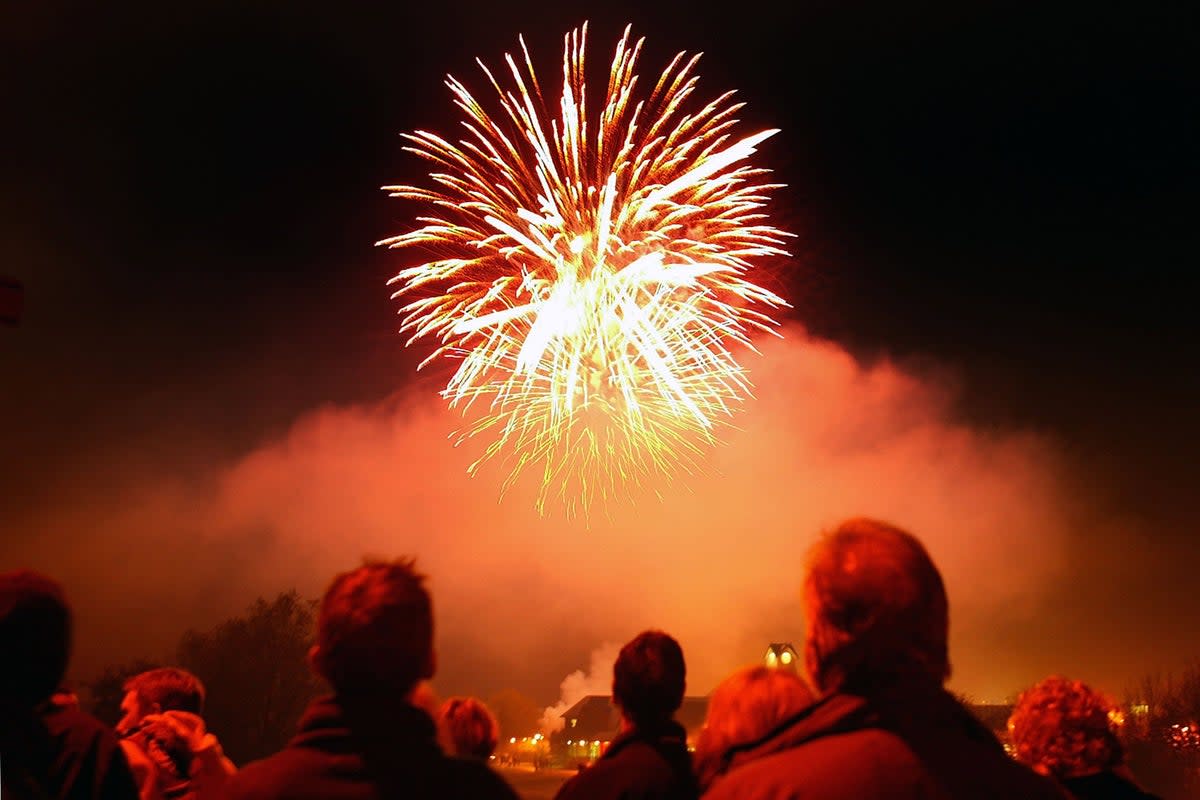What is the story behind Guy Fawkes Night and why do we celebrate it?

Bonfire Night, also known as Guy Fawkes Night, is on the horizon, with spectacular fireworks being lit across the UK.
On top of the enchanting colours that are sure to decorate the sky this weekend, there will be the usual toffee apples and sparklers galore. But do you actually know why we remember, remember the fifth of November?
Find out the history of Guy Fawkes Night and why we still celebrate it today below.
What is Bonfire Night?
Every year, people gather in early November to celebrate Bonfire Night across the UK.
There are firework displays in public parks across the country and people light bonfires with an effigy to represent the historical figure Guy Fawkes.
It is a quintessentially British activity celebrated every year, that refers to an event that could have changed the course of British history more than 400 years ago.
When is Guy Fawkes Night?
Guy Fawkes Night, or Bonfire Night, is celebrated on November 5, which this year falls on a Sunday.
Where to celebrate Bonfire Night in London
With incredible panoramic views over London, Ally Pally’s fireworks festival will not disappoint.
Adult tickets are £16.50 while children pay £11.50. Act now if you want to attend as tickets are seeking fast for the event tonight and Saturday.
If north London is a little far, Wandsworth Council is putting on a display in Battersea Park, with two days of bonfires and fireworks to immerse yourself in this year. Child tickets are £8.25 (under-fives free), while adults (ages 15 and over) pay £12.65 for entry, although Saturday night is sold out, and only tickets for Sunday are now available..
Wimbledon Park will also be putting on its usual firework display.
Tickets have sold out for the Saturday, but you can still go to Sunday's event. It's £8.02 for children (under-fives free), and it costs £10.70 for over-16s. Family-discount tickets are also available.
Unfortunately, Hackney has cancelled its Bonfire Night at Clissold Park again, citing the cost-of-living crisis as well as environmental concerns.
Victoria Park has also cancelled their firework display for 2023.
Luckily, Hammersmith and Fulham councils are back with their firework displays in 2023 after cancelling in 2022.
Tickets for the Ravenscourt and Bishops Park events cost £13.88 (£9.45 for children) with under-threes going free, and they are only available, in advance, from the website, for Friday and Saturday.
What is the story behind Guy Fawkes’s gunpowder plot?
In 1605, a group of Roman Catholic activists arranged the gunpowder plot, but it failed. At the time, King James I reigned over a Protestant England and the group wanted the freedom to practise their religion.
Guy Fawkes, an explosives expert, along with the rest of the group, plotted to assassinate King James and blow up the Palace of Westminster during the state opening of Parliament. Fawkes smuggled 36 barrels into a cellar under the House of Lords.
However, he was caught and sent to the Tower of London, tortured to give up the names of his co-conspirators, and then executed in January 1606 for high treason.
Bonfire Night
Facts about Guy Fawkes’ night
1. Guy Fawkes was not the ringleader of the plot to blow up the House of Lords – he was just one of a group of 13 men. The leader was Robert Catesby. Fawkes had the job of lighting the fuse, and so it was he who was caught in Parliament’s cellars with 36 barrels of gunpowder.
2. November 5 was initially known as Gunpowder Treason Day and bonfires were lit as a celebration that the king hadn’t been killed.
3. The tradition of burning an effigy of Guy Fawkes on a bonfire didn’t start until around the 18th century.
4. Fawkes was born a Protestant but converted to Catholicism in his teens.
5. It is believed William Shakespeare was also under suspicion as a conspirator, through his father's ties to Robert Catesby. As such, Shakespeare wrote and dedicated the Scottish play, Macbeth, to James I, and based Macbeth’s victim, King Duncan, on the king, to avoid suspicion and possibly a death sentence.
As a result of the failed plot, James I celebrated his survival by making his subjects hold bonfire nights every November 5.
Throughout the years, countries belonging to the British Empire also celebrated his failure to blow up Parliament, and it is still a long-standing tradition to honour this day.


